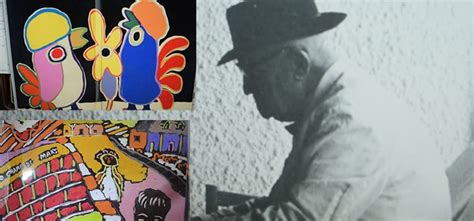A Quote by Jonathan Swift
Most sorts of diversion in men, children and other animals, are in imitation of fighting.
Related Quotes
The diversion of baiting an author has the sanction of all ages and nations, and is more lawful than the sport of teasing other animals, because, for the most part, he comes voluntarily to the stake, furnished, as he imagines, by the patron powers of literature, with resistless weapons, and impenetrable armour, with the mail of the boar of Erymanth, and the paws of the lion of Nemea.
Anyone who says that economic security is a human right, has been to much babied. While he babbles, other men are risking and losing their lives to protect him. They are fighting the sea, fighting the land, fighting disease and insects and weather and space and time, for him, while he chatters that all men have a right to security and that some pagan god—Society, The State, The Government, The Commune—must give it to them. Let the fighting men stop fighting this inhuman earth for one hour, and he will learn how much security there is.
It is rather an unpleasant fact, that the ugliest and awkwardest of brute animals have the greatest resemblance to man: the monkey and the bear. The monkey is ugly too (so we think) because he is like man--as the bear is awkward, because the cumbrous action of its huge paws seems to be a preposterous imitation of the motions of human hands. Men and apes are the only animals that have hairs on the under eye-lid. Let kings know this.
Psychologists would say that the only two important forms of social learning are imitation and teaching, and they will spend time trying to figure out if animals imitate or teach. Sometimes they find they do; sometimes they find they don't. And so that's kind of the level of controversy there. Biologists would include imitation and teaching and a range of other kinds of social learning. So we would call that culture, whereas the psychologist wouldn't.
Turkey is united against terror. People from left and right, men, women, children, different ethnicities, different religious groups are all united, and they're all condemning terrorism. We have been fighting against PKK terrorism. We're fighting against Daesh, ISIS. We're fighting against FETO. We're fighting against the HKPC. So we know how hard dealing with terrorism is.
It is strange to hear people talk of Humanitarianism, who are members of societies for the prevention of cruelty to children and animals, and who claim to be God-loving men and women, but who, nevertheless, encourage by their patronage the killing of animals merely to gratify the cravings of appetite.
Humans and other animals experience love and fear, and form deep emotional bonds with cherished companions. We mourn when a close friend dies, and so do other animals, as Barbara King's poignant book illustrates in compelling detail. How Animals Grieve helps us to connect and to better understand the complex social lives of other animals and of ourselves.
Some meat eaters defend meat eating by pointing out that it is natural: in the wild, animals eat one another. The animals that end up on our breakfast, lunch, and dinner plates, however, aren't those who normally eat other animals. The animals we exploit for food are not the lions and tigers and bears of the world. For the most part, we eat the gentle vegan animals. However, on today's farms, we actually force them to become meat eaters by making them eat feed containing the rendered remains of other animals, which they would never eat in the wild.
Whenever and wherever men have engaged in the mindless slaughter of animals (including other men), they have often attempted to justify their acts by attributing the most vicious or revolting qualities to those they would destory; and the less reason there is for the slaughter, the greater the campaign for vilification.





































